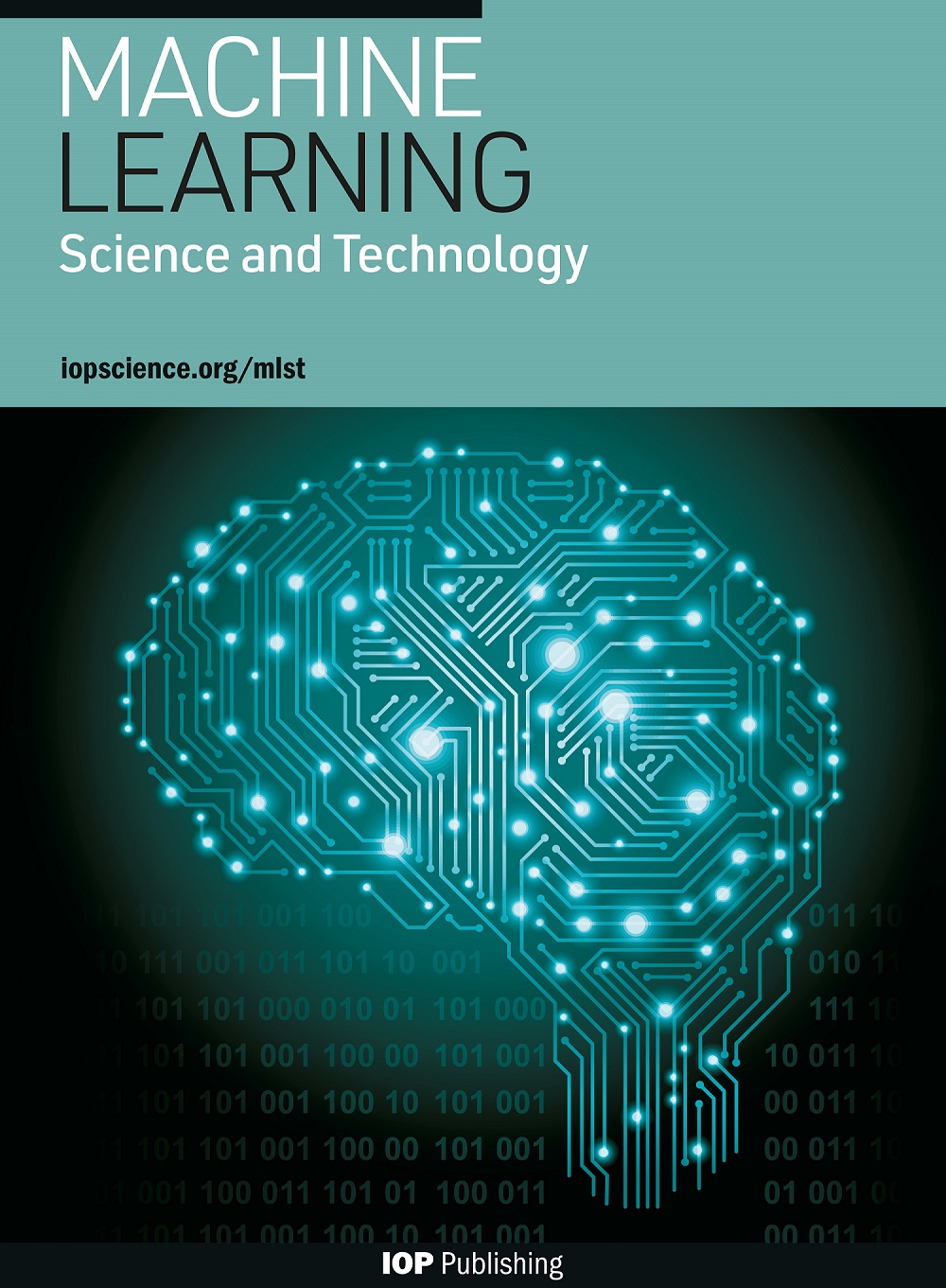Interpretable delta-learning of GW quasiparticle energies from GGA-DFT
IF 6.3
2区 物理与天体物理
Q1 COMPUTER SCIENCE, ARTIFICIAL INTELLIGENCE
引用次数: 0
Abstract
Accurate prediction of the ionization potential and electron affinity energies of small molecules are important for many applications. Density functional theory (DFT) is computationally inexpensive, but can be very inaccurate for frontier orbital energies or ionization energies. The GW method is sufficiently accurate for many relevant applications, but much more expensive than DFT. Here we study how we can learn to predict orbital energies with GW accuracy using machine learning (ML) on molecular graphs and fingerprints using an interpretable delta-learning approach. ML models presented here can be used to predict quasiparticle energies of small organic molecules even beyond the size of the molecules used for training. We furthermore analyze the learned DFT-to-GW corrections by mapping them to specific localized fragments of the molecules, in order to develop an intuitive interpretation of the learned corrections, and thus to better understand DFT errors.基于GGA-DFT的GW准粒子能量的可解释δ学习
准确预测小分子的电离势和电子亲和能对许多应用都很重要。密度泛函理论(DFT)的计算成本不高,但对前沿轨道能或电离能的计算可能非常不准确。对于许多相关应用,GW方法足够精确,但比DFT昂贵得多。在这里,我们研究了如何使用可解释的三角学习方法,在分子图和指纹上使用机器学习(ML)来学习以GW精度预测轨道能量。这里提出的ML模型可以用来预测小有机分子的准粒子能量,甚至超过用于训练的分子的大小。我们进一步分析了学习到的DFT到gw的校正,将它们映射到分子的特定局部片段,以便对学习到的校正进行直观的解释,从而更好地理解DFT误差。
本文章由计算机程序翻译,如有差异,请以英文原文为准。
求助全文
约1分钟内获得全文
求助全文
来源期刊

Machine Learning Science and Technology
Computer Science-Artificial Intelligence
CiteScore
9.10
自引率
4.40%
发文量
86
审稿时长
5 weeks
期刊介绍:
Machine Learning Science and Technology is a multidisciplinary open access journal that bridges the application of machine learning across the sciences with advances in machine learning methods and theory as motivated by physical insights. Specifically, articles must fall into one of the following categories: advance the state of machine learning-driven applications in the sciences or make conceptual, methodological or theoretical advances in machine learning with applications to, inspiration from, or motivated by scientific problems.
 求助内容:
求助内容: 应助结果提醒方式:
应助结果提醒方式:


